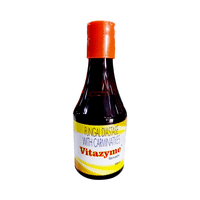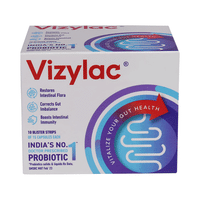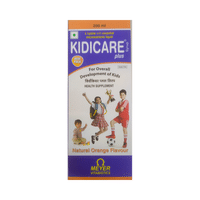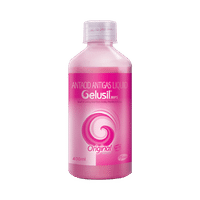Rs.101for 1 vial(s) (2.5 ml Injection each)
raBicip Injection માટે આંતરક્રિયાનો ખોરાક
raBicip Injection માટે આંતરક્રિયાનો આલ્કોહોલ
raBicip Injection માટે આંતરક્રિયાનો સગર્ભાવસ્થા
raBicip Injection માટે આંતરક્રિયાનો સ્તનપાન
ખોરાક
આલ્કોહોલ
સગર્ભાવસ્થા
સ્તનપાન
No interaction found/established
Rabicip-IV Injection સાથે આલ્કોહોલનું સેવન જોખમકારક છે.
UNSAFE
ગર્ભાવસ્થા દરમિયાન Rabicip-IV Injection નો ઉપયોગ કરવો જોખમકારક નીવડી શકે છે.
પશુઓના ગર્ભાશય પર અભ્યાસ નુકસાનકારક અસર દર્શાવે છે. જોખમ હોવા છતાં ગર્ભવતી મહિલાઓમાં ઉપયોગ કરવાથી ફાયદા મળી શકે છે. કૃપા કરીને તમારા ડૉક્ટરની સલાહ લો.
પશુઓના ગર્ભાશય પર અભ્યાસ નુકસાનકારક અસર દર્શાવે છે. જોખમ હોવા છતાં ગર્ભવતી મહિલાઓમાં ઉપયોગ કરવાથી ફાયદા મળી શકે છે. કૃપા કરીને તમારા ડૉક્ટરની સલાહ લો.
CONSULT YOUR DOCTOR
Rabicip-IV Injection ધાવણ આવે તે દરમિયાન ઉપયોગ કરવા સંભવિતપણે અસુરક્ષિત છે.
મર્યાદિત ડેટા સૂચવે છે કે દવાથી શિશુને નોંધપાત્ર જોખમ છે.
CONSULT YOUR DOCTOR
raBicip 20mg Injection માટે સોલ્ટની માહિતી
Rabeprazole(20mg)
Rabicip injection ઉપયોગ
Rabicip injection કેવી રીતે કાર્ય કરે
Rabicip-IV Injection પેટમાં એસિડના ઉત્પાદનને ઓછું કરે છે.
Rabicip injection ની સામાન્ય આડઅસરો
ઉબકા, માથાનો દુખાવો, પેટ ફૂલવું, અતિસાર, ઊલટી, પેટમાં દુઃખાવો
raBicip Injection માટે સબસ્ટિટ્યુટ
600 સબસ્ટિટ્યુટ
600 સબસ્ટિટ્યુટ
Sorted By
 Rs. 113.44pay 118% more per Injection
Rs. 113.44pay 118% more per Injection Rs. 163.31pay 215% more per Injection
Rs. 163.31pay 215% more per Injection Rs. 110.16pay 118% more per Injection
Rs. 110.16pay 118% more per Injection Rs. 144.70save 44% more per ml of Injection
Rs. 144.70save 44% more per ml of Injection Rs. 42.19save 19% more per Injection
Rs. 42.19save 19% more per Injection
raBicip 20mg Injection માટે વારંવાર પૂછાતાં પ્રશ્નો
Rabeprazole
Q. What is Rabicip-IV Injection used for?
Rabicip-IV Injection is used for the treatment of stomach and intestinal ulcers (gastric and duodenal ulcers), reflux esophagitis or gastroesophageal reflux disease (GERD). It works by reducing the amount of acid made by your stomach and thus relieves your symptoms. Rabicip-IV Injection also prevents acidity associated with use of painkillers and stress ulcers in critically ill people. It is also used to treat a disease associated with excessive acid production in the stomach known as Zollinger Ellison syndrome (ZES). Rabicip-IV Injection is also helpful as a preanesthetic medication (medicine given just before anesthesia) to reduce the chances of aspiration related complications like lung injury.
Q. Can I stop taking Rabicip-IV Injection if I feel better?
No, do not stop taking Rekool before completing the full course of treatment. You will start to feel better before your treatment is complete. Rabicip-IV Injection is given into a vein, only if oral administration is not possible, for upto 7 days. As soon as the person is able to take it orally, intravenous administration is stopped and oral form is prescribed. Take Rabicip-IV Injection only as prescribed by your doctor to get maximum benefit.
Q. Is Rabicip-IV Injection safe?
Yes, Rabicip-IV Injection is relatively safe. Most of the people who take Rabicip-IV Injection do not get a side effect. It is advised to be taken as directed by the doctor for maximum benefits.






















